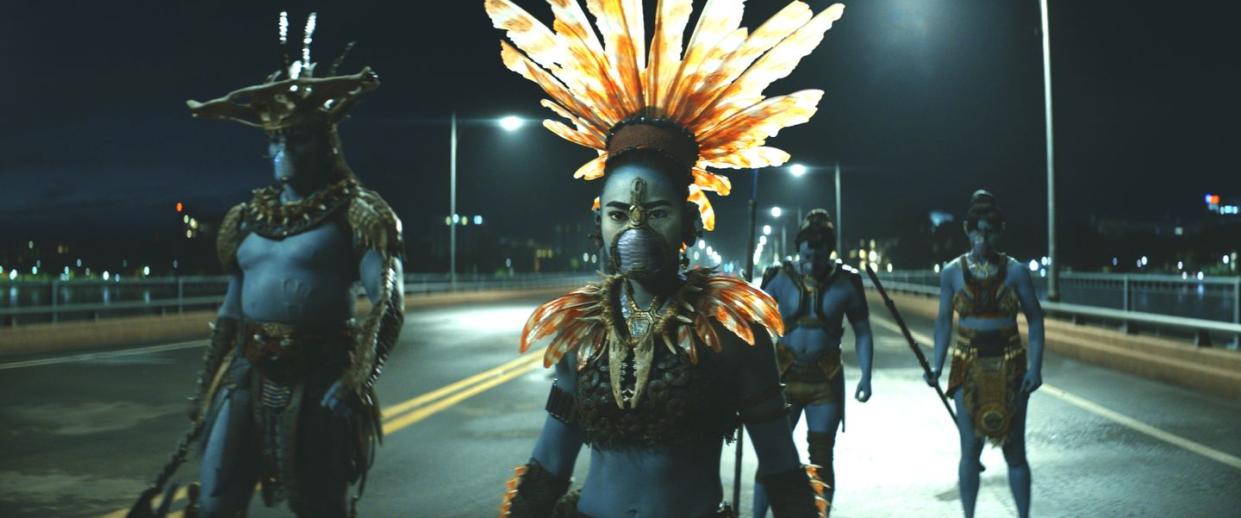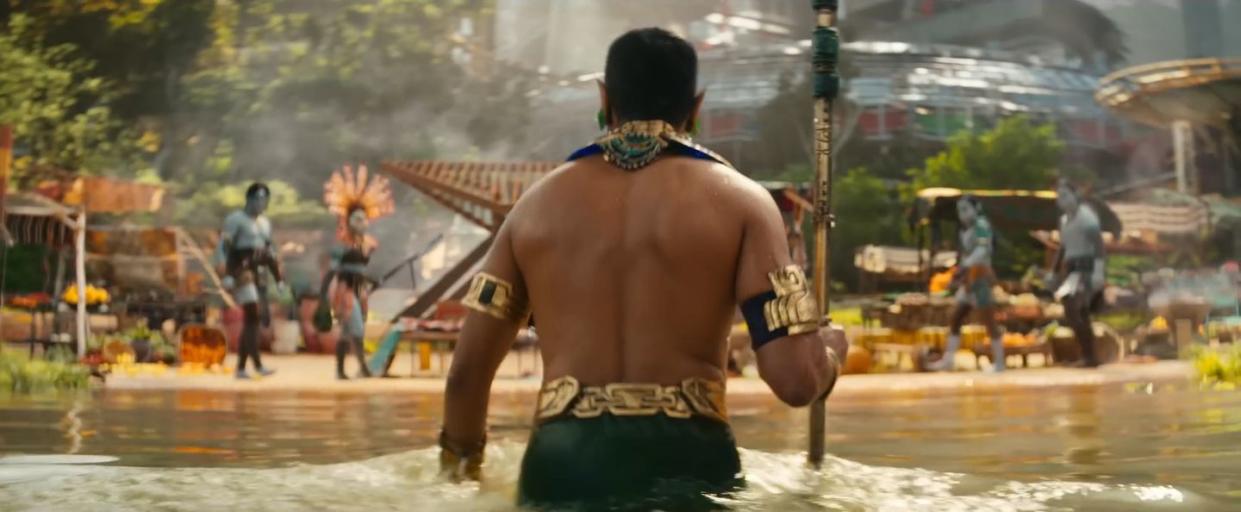Black Panther 2 featured a Namor Easter egg you might have missed
Black Panther: Wakanda Forever had a mammoth task, and — for the most part — the sequel accomplished what it set out to. As we wrote in our review, the second outing from Ryan Coogler managed to respectfully and emotionally address Chadwick Boseman's death while also allowing the story to carry beyond the absence of its star.
As any Marvel movie does, Black Panther: Wakanda Forever also had to work within the constraints of the Marvel Cinematic Universe. This entails setting up future films and shows, as well as introducing us to new characters.
Black Panther: Wakanda Forever had three of these broad MCU tasks: to set up the Midnight Angels and Ironheart, as well as introduce us to the underwater kingdom of Talokan and its leader: Namor, played by Tenoch Huerta. When Namor was first teased as the 'big bad' of Black Panther: Wakanda Forever, fans were rightly excited.
Namor has been a staple of Marvel Comics since its inception (yes, he featured in the very first ever comic) and to finally see him get the big screen treatment was long overdue. While the movie takes great departures from its source material, there are little nods and inspirations from the comics.
It isn't a spoiler to say that the overarching threat to Wakanda in the film is the imminent battle with Talokan, teased in all of the trailers. There is in fact a comic plot in which Namor floods Wakanda (from the Avengers vs. X-Men storyline).
In the film, Namor is wary of the fact that the surface world is hunting for Vibranium, a direct result of Wakanda's foray into the international community following the events of the first Black Panther. During the battle, whose specifics we won't get into to save from spoilers, Namor at one point says "imperius rex", which resulted in a cheer from some members of the audience at a screening we attended. The phrase comes directly from the comics and is Namor's battle cry.
As established in Black Panther: Wakanda Forever, Namor himself is something of a god, and is even referred to by his people as Ku'ku'lkán, which is the feathered serpent god. This fits back into the new storyline for the film in which Mesoamerican culture is the foundation of the Talokan people.

In the comics, Namor's name was created by artist Bill Everett by writing down noble-sounding names backwards and forward; he landed on Namor/Roman as his choice. The film, however, gives him a much more interesting backstory.
Namor tells Shuri that he took the name Namor when a Spanish coloniser referred to him as a child without love, or 'sin amor' and the name Namor was coined. What's most interesting about this shift is how it furthers the themes that Coogler explored in the first Black Panther.
As Huerta said: "In Latin America, especially Mexico, we deny our indigenous roots. It's just like a token sometimes, but in general terms, we deny it because it's not about genes for us, because almost everybody in Mexico has indigenous or African roots – it's about culture.

"Culturally, we are apart from indigenous roots, so to embrace those roots and honour these two main sources in Latin America, which is African and indigenous roots, is really important." One way this is worked into Black Panther: Wakanda Forever is in the salute the Talokan people give each other. The open palm, with the heels of each hand touching is based on a gesture seen in many Mesoamerican codices, statues, and paintings (like a statue of the Mayan Maize deity here).
Another way that this cultural specificity, and how it is viewed by those outside of a given culture, comes through in the way in which Namor's name is pronounced by non-Talokanians. The film features two pronunciations.
Producer Nate Moore told CBR: "There is certainly a way that a Spanish speaker — or even a Mayan speaker – would say Nämor [Nah-mor], versus a way that an English speaker – or somebody who is a little more Western in slant — might say Nāmor [Nay-mor]. And we thought that was just interesting. I mean, it's a reality that people face, and it felt more genuine than having everybody pronounce it correctly, to be quite honest."
Black Panther: Wakanda Forever is now playing in cinemas
You Might Also Like
